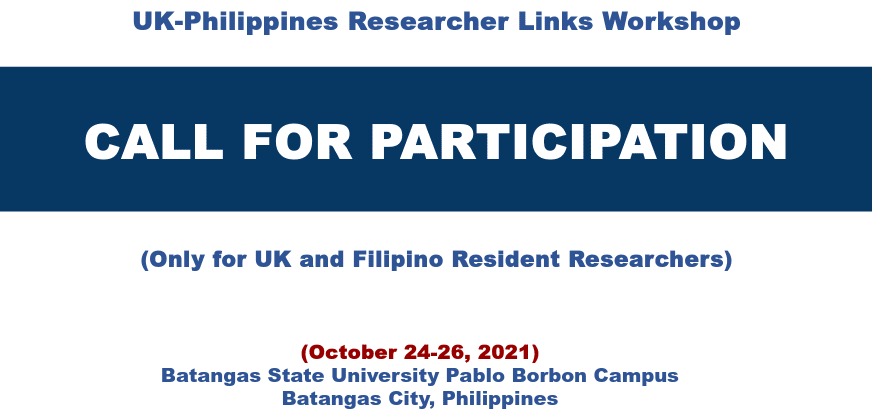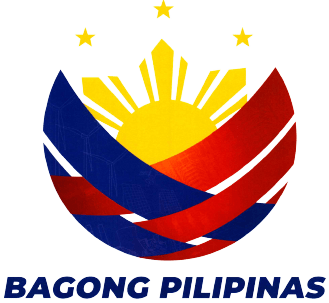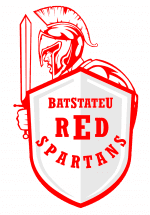
Developing Smart Environmental Resilience Solutions for Coastal areas in the Philippines: Susceptibility, Adaptation and Mitigation Measures: SEACAP.
Disciplines: Built Environment, Engineering, Environmental Resilience, Emergency Management
Partner Universities: University of Wolverhampton (UK) and Batangas State University (Philippines)
Dates and venue: (October 24-26, 2021) Batangas State University Pablo Borbon Main I, Batangas City, Philippines
The full application below must be completed and submitted by the 30th of September 2021 using the google forms link at the end of this email
Workshop background:
The vulnerability of the Philippines as an archipelago is evident in a series of disasters that struck the country. Philippines’ 832 municipalities are in coastal areas where 62% of the total population of the Philippines live. Its 36,289 km of coastline made this tropical region predisposes the island to rainy and dry seasons due to variations in the trade wind intensity and tropical convergence activity of the Pacific Ocean. A notable disaster in the Philippine coastal community was the storm surge brought by Hurricane Haiyan in 2013 leading to a loss of 6,300 people and damage to properties amounting to £1.8 Billion. In addition, Philippines' geographic location in the “Pacific Ring of Fire” surrounded it with trenches and fault lines which may cause earthquakes and tsunamis.
This SEACAP (Solutions for Environmental Adaptation of Coastal areas in Philippines) workshop will serve as a platform for both experts from the UK and Philippines to better interpret and adapt environmental resilience in coastal communities as well as understand the culture, practices, needs and limitations in developing coastal resilience. The 5-day scientific workshop aims to gather researchers of various disciplines interested in helping the Philippines become environmentally resilient on disaster and degradation of natural resources. Senior and Early Career Researchers (ECRs), from both the UK and the Philippines, from various disciplines such as environmental and coastal engineering, communication and information systems, big data data, internet of things and built environment are the intended audience. It will help strengthen the capacity of local participants in realizing the relevance of emerging technologies in environmental resilience. It will also provide a good opportunity to develop multidisciplinary approaches for effective environmental resilience management of coastal communities.
The programme, ‘British Council Researcher Links’ provides opportunities for early career researchers from the UK and internationally to interact, learn from each other and explore opportunities for building long-lasting research collaborations. As part of this programme, we are now recruiting early career researchers and other relevant stakeholders to participate in the above workshop, jointly organised by University of Wolverhampton, UK and Batangas State University, Philippines.
The British Council will cover the costs related to the participation in the workshop, including: travel (both international and local), accommodation and meals. Costs for the visa, and travel insurance will be covered; however participants will be responsible for making all the necessary arrangements. The British Council accepts no responsibility for any problems which may occur when the participants are in-country especially due to the complications caused by COVID-19.
Sponsorship
Newton Fund will cover the costs related to the participation in the workshop, including travel (both international and local), accommodation and meals only for up to 20 UK resident researchers. Costs for the visa and travel insurance will be covered for UK participants; however, participants will be responsible for making all the necessary arrangements.
The workshop organisers accept no responsibility for any problems which may occur when the participants are in-country especially due to the complications, limitations and restrictions caused by the current COVID-19 situation.
Eligibility
- Applications must be submitted before the deadline using the Researcher Links this application form (upon clicking this should lead to the Google form)
- Participants must be Early Career Researchers: Early Career Researcher is someone holding a PhD (or having equivalent research experience) and having up to 10 years of post-PhD research experience. (waived)
- Participants must have a research or academic position (a permanent post, research contract, or fellowship etc.) at a recognized research institution either in the UK or in the Philippines
Selection Procedure
Applications to participate in the workshop will be screened according to following criteria:
- Eligibility checking
- Quality assessment
Quality Assessment
- Experience and relevance of the applicant’s research area to the workshop
- Motivation and contribution to the aims of the workshop
- Description of the long term impact expected through the participation in the workshop
- Ability to disseminate workshop’s outcomes
Application and Deadline
The full application form must be completed and submitted by the 30th of September 2021 by 16:00 GMT.
Equal Opportunities
Equal opportunities and diversity are at the heart of the British Council’s cultural relations ambitions. While recognising that some research fields are dominated by one particular gender, coordinators are encouraged to work towards an equal gender balance and promote diversity. They must not exclude applicants on the basis of ethnicity, gender, religious belief, sexual orientation, or disability. Participants’ selection undertaken by workshop organisers must not contravene this policy. Extra support to enable participation of Early Career Researchers with special needs will be given.
Notification Results
Only the successful applicants will be notified via email by 8th of October 2021.
*Date of the workshop may change due to the current COVID-19 situation. Format of the workshop (virtual or face-to-face) will be determined for both countries’ travel guidelines.



